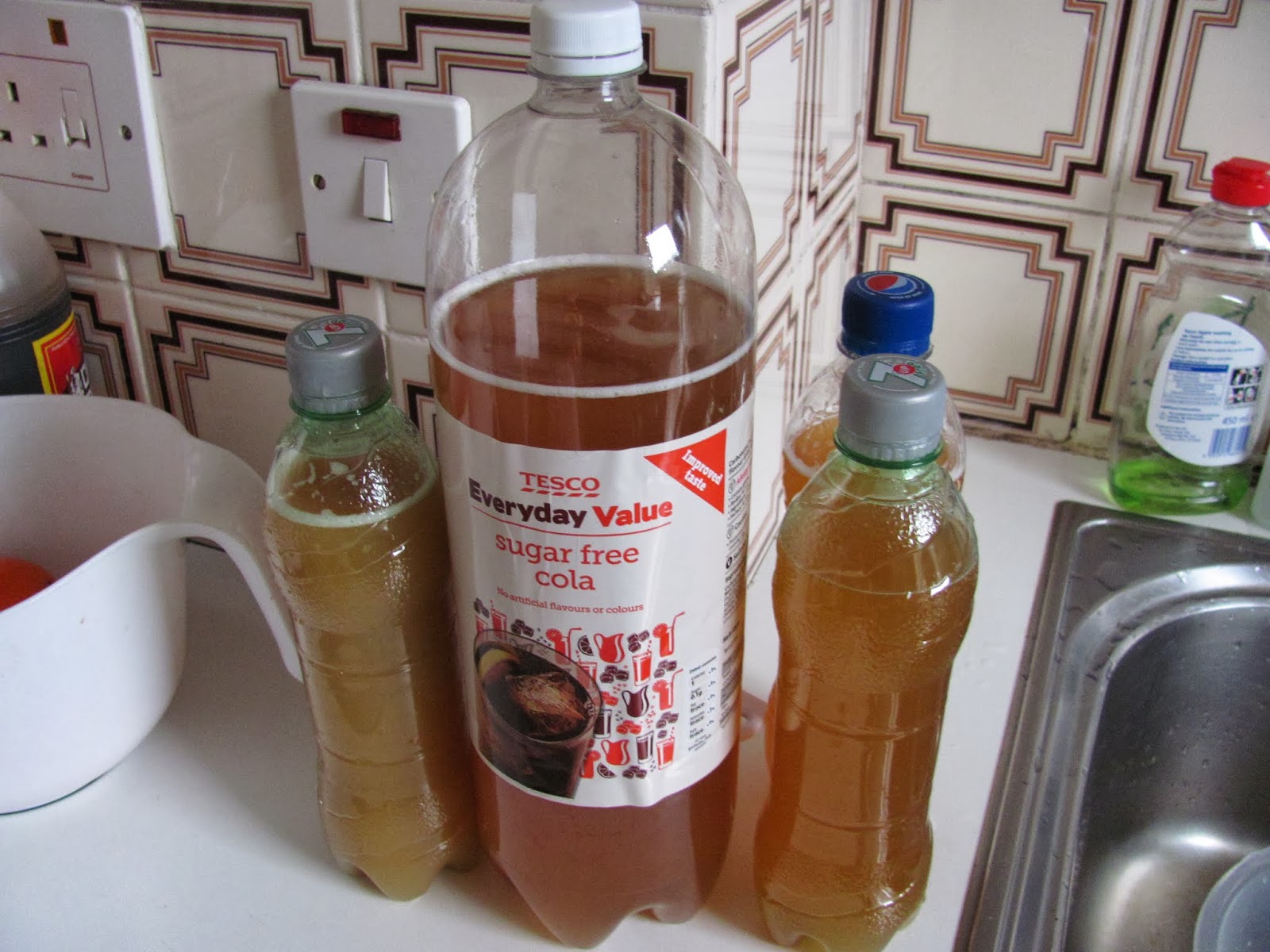Double-Bottle Bonanza
Recently, I put down a 23L batch of Cooper's IPA, my first kit and kilo batch since 2012. About a week before that, I started a strange apple juice/honey/sugar mix thing in my 5L plastic water bottle. I have since remembered, by the way, that an apple juice and honey mixture is called "cyser," although it is usually a honey mead with some added apple, not apple cider with some added honey, as was mine.
We recently (and sadly!) finished the last of our Brupaks Irish Stout batch to make bottling room for this new brew while I continue to slowly build my bottle collection. I took measurements of both the cider and beer, and they were ready to go. Here are the stats:
Cooper's IPA: Jan 30- OG 1.044. Feb 10- FG 1.012. Approx 4.12% Alc/Volume, 73% apparent attenuation
Weird Cyser-Thing: Jan 22- OG 1.054. Feb 10- FG 1.002. Approx. 6.8% Alc/Volume, 96% apparent attenuation
I had cheated and measured (and tasted!) the cyser thing before bottling day, and it has a very unique smell and taste. The honey is certainly there, but muted by the apple and black tea taste. A great sipper, and at almost 7 percent alcohol, it should certainly be sipped. Speaking of that cider, my hard-and-fast rule of homebrewing:
"You cannot work on homebrew unless you are enjoying a homebrew."Well... if you insist, self.
 |
| A Glass of Newly-Finished Cyser |
Yes, that's how depleted we were of homebrew, I had to pour a glass of the drink I was bottling. No worries, though, I had planned for that all along. I decided to bottle the cyser after I primed the batch of beer. I washed and sanitized all my bottles, mixed in 1 teaspoon of brown sugar per 500mL of cyser and bottled away.
 |
| Cyser Fermenter Post-Pint-Pouring |
 |
| Clean Bottles Ready for Brew |
 |
| Cyser Yield- One Party and Three Pints |
The bottling went pretty smoothly, I got my siphon started in the big bucket and filled each of the different sized bottles individually. The process isn't as easy without my old auto siphon and bottling wand, but I manage just fine with the tubing and bucket, gifts from Lord Stilton, my Irish homebrewing Godfather.
 |
| Bottled Beer |
 |
| Empty Yeasty Bucket |
At the end I was sweaty, tired, and sticky- but I had seven glorious gallons of liquid gold going into the cupboard. Now I just had the least fun part of homebrewing ahead of me- cleaning of self, equipment, and entire kitchen.
Worth it!
I know as of this writing that the cyser tastes great, and will be even better when fully carbonated. I didn't taste the beer because my bottling was pretty efficient- I didn't have much leftover to sample. The FG of 1.012 was a bit higher than I usually like, but the previous stout batch didn't get any lower than that, and I wonder if these ingredient kits and their yeast just don't go down as far as other batches I've made before. The stout was fine, and I have every confidence this IPA will be as well. As always, I'll put an update on the blog when things finish up.
[Edit] I visited with a team of brewers from a micro craft brewery in Dublin who told me English ale yeasts usually don't ferment as low as American ale yeasts. 1.012 is a perfectly acceptable number for these English ales, I was just used to my US-05 American ale yeast taking beers down to 1.006. Now I know.

No comments:
Post a Comment
Please leave a comment, we'd love to hear what you think! Comments are word verified to prevent SPAM.